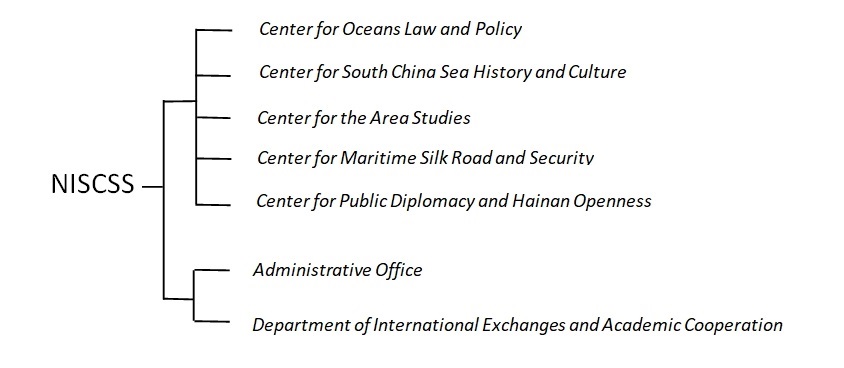
About Us
NISCSS Profile
The National Institute for South China Sea Studies (NISCSS), located at Jiangdong New Area, Meilan District, Haikou City, is an academic research institute dedicated to research on issues of the South China Sea (SCS) and related academic exchanges. Its predecessor was the Hainan Research Institute of South China Sea established in 1996. It was upgraded and renamed the National Institute for South China Sea Studies in July 2004. The NISCSS launched its Beijing Office in January 2013. It set up a postdoctoral research workstation in October 2018, and was granted the right to independently evaluate professional titles in first-level disciplines such as law and history in the list of social sciences in July 2019.
In nearly 30 years, the NISCSS has grown into a national professional think tank with five research centres and two management departments, namely the Center for Oceans Law and Policy, Center for South China Sea History and Culture, Center for the Area Studies, Center for Maritime Silk Road and Security, Center for Public Diplomacy and Hainan Openness, as well as the Administrative Office and the Division of International Exchanges and Academic Cooperation. It has more than 50 full-time and part-time researchers, whose research fields cover the history and geography of the SCS, maritime law, international relations, marine economy, resource development, ocean governance, blue carbon sinks, and public diplomacy etc.

The NISCSS is committed to building a research base for SCS issues, a training hub for marine governance talents, and an international exchange platform for SCS issues. It aims to provide intellectual support for defending China’s sovereignty and maritime rights over the SCS islands, peaceful settlement of disputes, and promotion of regional ocean governance and cooperation. It has established a series of institutionalized academic exchange platforms with counterparts in ASEAN, the United States, Japan, South Korea, Canada, and China’s Taiwan region, launched a number of productive think tank "Track 2.0" exchange projects, and created a think tank cooperation network that integrates international conferences, media resources and academic connections.
